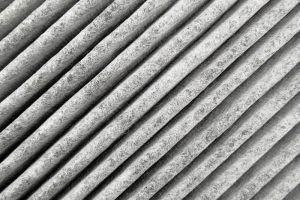 February isn’t too early to start thinking about the spring. The start of spring means allergy season, although it doesn’t always wait for the official first day of spring. It can strike as early as this month. As soon as the weather warms up a bit, pollen-bearing plants start to bloom and the pollen count spikes. That means sniffles, sneezes, asthma, and worse!
February isn’t too early to start thinking about the spring. The start of spring means allergy season, although it doesn’t always wait for the official first day of spring. It can strike as early as this month. As soon as the weather warms up a bit, pollen-bearing plants start to bloom and the pollen count spikes. That means sniffles, sneezes, asthma, and worse!
If you’re worried about allergy season, or about just staying healthy in general in your house, it’s a good idea to have indoor air quality improvements installed in your HVAC system. Air filters and air purifiers are the most common methods of removing allergens and other aggravating particles from circulating around a house. Usually, IAQ experts pair a filter with a purifier. Filters are a standard way of air cleaning, and they’re useful for almost any home. Since some smaller particles can work through a filter’s mesh, an air purifier serves as the second line of defense.
But there are many types and strengths of air filters, and just as there are many types of air purifiers. How do you find the best combination for great air quality in your home?
Start with the experts
The simple answer is: Ask an IAQ professional! Making a mistake with air filters and purifiers can have big consequences for your HVAC system. It isn’t only a matter of the devices not doing their job properly. A filter that is too powerful for the blower in the HVAC system creates serious problems. Because it blocks airflow, it reduces the amount of air coming from room vents, lowering comfort. But it also spikes pressure in the rest of the ventilation system, which creates a rise in operating costs and may even damage the AC or heater.
When you work with indoor air quality professionals, they’ll start with air filters and ensure the filters have a strength level that will 1) stop the largest number of particles while 2) not causing heavy restrictions on airflow. The MERV rating is the measure of the strength of a filter, and an indoor air quality expert knows how to match the MERV rating of filters to the power of the HVAC system.
Once the right filter strength is found, the IAQ expert can determine what types of contaminants may get through. Then they can determine the air purifier type (or types) to counteract them. Air purifiers that use ionization are common, since they can trap odor molecules, smoke, volatile organic compounds, pesticides, and other irritants and health hazards. There are also air purifiers that use oxidization. If the home has problems with mold spores and organic pollutants such as microbes and germs, a UV air purifier is a good choice.
As long as you called on experienced professionals to install filters and purifiers for your home, you can trust that you’ll end up with the right combination for cleaner indoor air.
We provide service for HVAC in Bossier City, LA and the surrounding areas, and this includes extensive indoor air quality solutions such as air purifiers and air filters.
Call the Doctor of Home Comfort: Hall’s Heating, Air Conditioning & Refrigeration.


